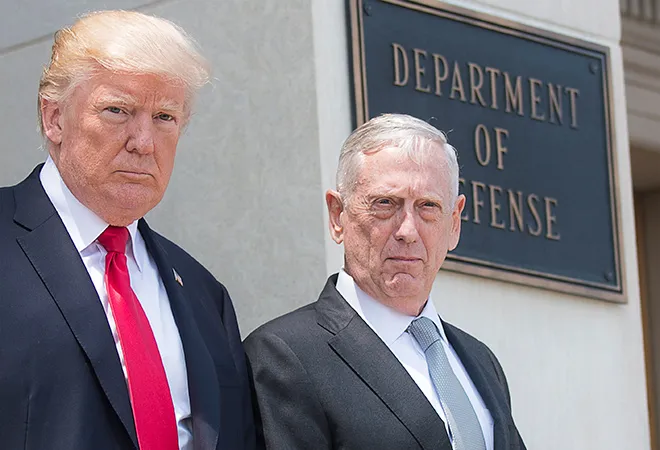Last week, the Donald Trump administration decided to shun another world body—the UN Human Rights Council (UNHRC). The US secretary of state, Mike Pompeo, and its ambassador to the UN, Nikki Haley, explained the US departure from the 47-member council in a joint statement that argued that the UNHRC protects human rights abusers, allows them to serve on the council and shows bias in rendering decisions, especially against Israel. Just this year, the council has passed more resolutions condemning Israel than Iran, Syria and North Korea combined. In many ways, the US move is unprecedented in the 12-year history of the council as no country has ever dropped out voluntarily.
Trump has long been a vocal critic of the UNHRC and its targeting of Israel. Haley has slammed the body as a “forum for politics, hypocrisy and evasion”, and for its “relentless, pathological campaign” against Israel, threatening to take the US out if the council did not target other dubious regimes and remove Item 7, the standing resolution critical of Israel’s treatment of Palestinians. Trump’s national security adviser, John Bolton, had opposed the creation of the body when he served as the US ambassador to the UN under president George W. Bush. So, in some ways, the US decision can be seen as a function of the individual preferences of key decision makers in Washington. But there are larger issues that underlie this decision.
The Trump administration is keen to reorder the global political architecture, which, it believes, gives America’s adversaries unfair advantages and makes it difficult for the country to maintain its pre-eminence.
In line with its “America First” campaign rhetoric, the Trump administration has announced its withdrawal from the Paris climate accord, the Trans Pacific Partnership negotiations and the Iran nuclear deal. The US has withdrawn from Unesco (UN Educational, Scientific and Cultural Organization) over what it claims is the organization’s “continuing anti-Israel bias”, a decision which will come into effect by the end of this year. The US has slapped tariffs against key trading partners, recognized Jerusalem as Israel’s capital and moved the US embassy to the holy city from Tel Aviv. The North American Free Trade Agreement is seemingly in trouble, with Washington issuing dire warnings. Trump has not hesitated to take an isolationist stand on global issues, as was in evidence during the recent G-7 summit, where he publicly took on America’s closest allies.
America’s discomfort with multilateralism has always been part of the nation’s body politic. Even as it laid down the post-World War II global multilateral order, the conservatives in America have always been suspicious of giving up their sovereignty to any world body. But the liberal order that America created after 1945 helped in maintaining its supremacy, so it was tolerated. Since the early 2000s, when the American “unipolar moment” started dissipating, voices have grown louder about the utility of American investment in an order that was seemingly offering more to America’s rivals. In fact, many in the US have argued that China’s rise has been possible because the US-led liberal order allowed China the strategic space to rise without constraints. Where the US was busy waging wars in far-flung regions of the world in the name of human rights and global order, China was busy accumulating wealth and power by exploiting a system that the US had gifted it.
When the UNHRC was established in 2006, the then president Bush had refused to become a member owing to concerns that it would be little different from its predecessor, the UN Commission on Human Rights, which had been widely criticised for accepting as members countries with poor human rights records. Though the Barack Obama administration made the US a member in 2009, it remained highly critical of its functioning as well. So, Trump’s criticism is not new. What is new is Trump’s approach, which is distinct even from that of his conservative predecessors, in so far as it brooks no dissent as it moves rapidly to dismantle the multilateral order.
America’s defence of the liberal global order has been the central pillar of the international system since 1945.
Even when critics argued that American presence could be overweening, it was tolerated and even welcomed in large measure because it was viewed as being in the larger interest of global stability. Today, the Trump administration, with its actions, is signalling that the US is no longer interested in sustaining Pax Americana—not ideationally and not materially. This is a significant shift for the global order to absorb.
The end of the Cold War was greeted with slogans like the “end of history”, which talked of the continuing domination of liberal political and economic values as a given. The Trump administration is neither interested in preserving economic globalisation nor keen to promote liberal political values. In the absence of America, no obvious leader exists to fill this vacuum. Western Europe is too involved in domestic issues, and, despite Chinese President Xi Jinping’s attempts to portray his nation as the champion of economic globalization, few take Beijing seriously as an exemplar.
Trump’s penchant for disruption is forcing new alignments and India’s careful balancing act with China and Russia, exemplified in recent informal summitry, is a testament to some trying times ahead.
This commentary originally appeared in Live Mint.
The views expressed above belong to the author(s). ORF research and analyses now available on Telegram! Click here to access our curated content — blogs, longforms and interviews.




 PREV
PREV


